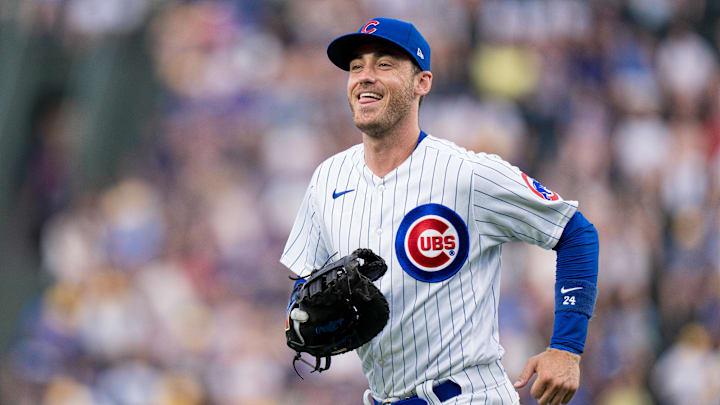Late Saturday/early Sunday, the Chicago Cubs and Cody Bellinger finally broke the stalemate. Bellinger is returning to Chicago on a three-year deal.
Bellinger's free agency spilled just barely into Spring Training, and can now officially join the team that felt destined to re-sign him. The New York Yankees and San Francisco Giants both had early offseason interest in the former MVP, but did not have the patience to withstand a long staring contest with Bellinger's agent, Scott Boras.
Bellinger is off the market, and now we wonder what about the other four Scott Boras free agents?
For now, let's look at the Bellinger deal.
Cody Bellinger contract details
Jeff Passan was first to report Bellinger's signing with the Cubs. According to Passan, the structure of the deal is as follows:
- 3 years
- $80 million ($26.67 million per year AAV)
- Player opt-out after 2024 and 2025
The deal does not break down evenly. Here's how it will pay out if Bellinger doesn't opt out of each year:
- 2023: $30 million
- 2024: $30 million
- 2025: $20 million
That means that Bellinger has to play all three years for the Cubs to get that discounted $26.67 per year price. If he opts out after year one or two they are paying him a whopping $30 million in AAV.
Grading the Cubs re-signing Cody Bellinger
On the face, $30 million is an absurd amount of money to pay an outfielder that has proven a bounceback over the course of one (1!) season so far. Even worse is the fact that the Cubs released their control over the future of the contract, with two years of player options and no club options reported just yet.
Bellinger is a high-upside play who clearly fits well with the Cubs. Fans love him. There is no reason to hate the player-organization fit here. But it's extremely hard to look at the structure and get excited over what the Cubs landed on here after months of negotiations.
Scaling the deal, Juan Soto makes a hair over $30 million AAV. In total AAV across the three years, the Cubs will pay Bellinger more than what Kris Bryant, Giancarlo Stanton, George Springer, and Fernando Tatis Jr. make. What's worse is that in order for that third year of discount money to make the deal look better to even come into play, it probably means Bellinger isn't playing that well because he hasn't chosen to re-enter the market. If he continues to play well, he's leaving after one of those two $30 million seasons.
Looking at the long view, the Cubs also have Pete Crow-Armstrong waiting in the wings, and this effectively blockades him from getting playing time unless Bellinger has another great year and enters the open market again after 2024. If they really need to bring PCA up, Bellinger can DH or play first base, but there's little upside in having such a clunky fit in that possible timeline.
As more details come out on possible performance-based clauses in the contract, this grade may change. But for now it's a so-so deal that feels like the Cubs agreed to just because they felt they had to.
The upside view of this contract could improve the grade a bit, but it all depends on how it plays out. The Cubs gave up tons of money and leverage to a player that needed Chicago more than Chicago needed him.
The Cubs win here by making sure they only committed $80 million to the reported nine figures Bellinger wanted this offseason. Three years in the grand scheme of things is not a ton, though it may be challenging to work around just as the Cubs are hoping to compete.
It's a fine deal that gets the job done, but the lost leverage here is killer for the Cubs, and not for Bellinger.
Cubs grade: C
